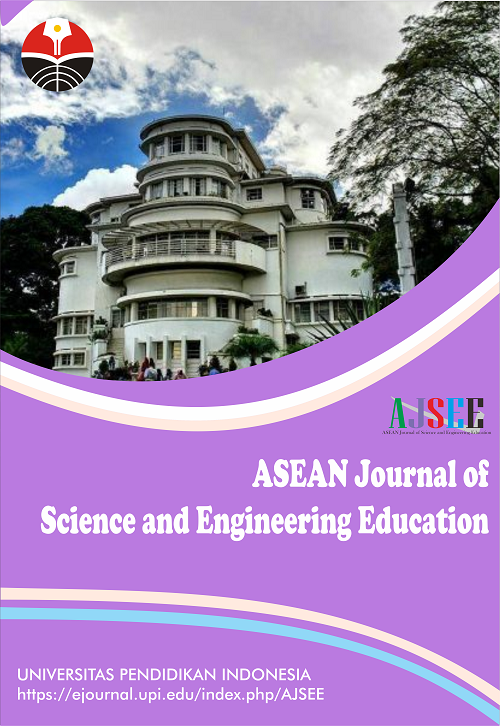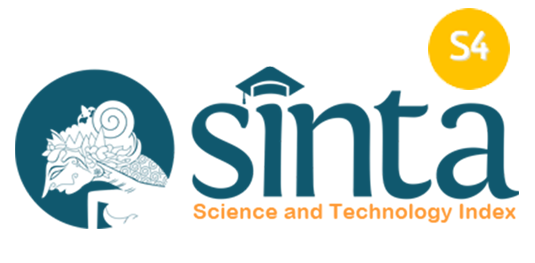Impact of the Elicit, Engage, Explore, Explain, Elaborate, Evaluate, and Extend (7E) Learning Model on Senior Secondary School Students’ Mathematics Achievement
Abstract
This study investigated the effect of the Elicit, Engage, Explore, Explain, Elaborate, Evaluate, and Extend (7E) instructional model on the academic achievement of senior secondary school students in mathematics in Ijebu Ode, Ogun State, Nigeria. A pre- and post-test quasi-experimental design was adopted, guided by two research questions and two null hypotheses. The sample comprised 107 students from two mathematics classes, purposively selected from two public secondary schools, with 52 assigned to the experimental group (7E model) and 55 to the control group (discussion method). Data were collected using a 50-item mathematics achievement test, with a reliability coefficient of 0.87 (Kuder-Richardson 20). Descriptive statistics (mean and standard deviation) and independent sample t-tests at the 0.05 significance level were used for analysis. Results revealed a significant improvement in mathematics achievement for students taught using the 7E model compared to those taught using the discussion method. However, no significant gender difference was found in achievement among students exposed to the 7E model. It is recommended that mathematics teachers adopt the 7E instructional model to enhance learning outcomes.
Keywords
Full Text:
PDFReferences
Abdullahi, A. C., Jibrin, A. G., Dauda, M. O., and Danjuma, I. M. (2021). Effect of 7Es learning strategy on retention secondary school students in biology in Bauchi Metropolis, Bauchi State, Nigeria. Global Journal of Education, Humanities & Management Sciences, 3(1), 25-136.
Abiodun, T. O., Asanre, A. A., Ogundeji, M. A., Odupe, T. A., and Rasaki, M. G. (2022). Influence of teachers’ characteristics on students’ achievement in mathematics in Ogun State. Journal of Science, Technology and Education, 6(3), 23–30.
Achor, E. E., Imoko, B. I., and Ajai, J. T. (2010). Sex differentials in students’ achievement and interest in geometry using games and simulations technique. Necatibey Eğitim Fakültesi Elektronik Fen ve Matematik Eğitimi Dergisi, 4(1), 1-10.
Adesoji, F. A., and Idika, M. I. (2015). Effects of 7e learning cycle model and case-based learning strategy on secondary school students' learning outcomes in chemistry. Journal of the International Society for Teacher Education, 19(1), 7-17.
Adesoji, F. A., and Idika, M. I. (2015). Effects of 7E learning cycle model and case-based learning strategy on secondary school students’ learning outcomes in chemistry. Journal of International Science and Technology Education, 19(1), 7–17.
Ajai, J. T., and Imoko, B. I. (2015). Gender differences in mathematics achievement and retention scores: A case of problem-based learning method. International Journal of Research in Education and Science, 1(1), 45–50.
Ajai, J. T., and Imoko, B. I. (2015). Gender differences in mathematics achievement and retention scores: A case of problem-based learning method. International Journal of Research in Education and Science, 1(1), 45–50.
Ajibola, A. (2014). Effects of two methods of teaching on students’ retention in basic science and technology. Journal of Education and Practice, 3(3), 12–18.
Akanbi, A. O., Olayinka, Y. W., Omosewo, E. O., and Mohammed, R. E. (2021). Effect of mind mapping instructional strategy on students’ retention in physics in senior secondary schools. Anatolian Journal of Education, 6(1), 145–156.
Barakaev, M., Shamshiyev, A., O’rinov, X., and Abduraxmonov, D. (2020). Problems of teaching mathematics in modernization. International Journal of Progressive Sciences and Technologies, 19(2), 201–203.
Bertiliya, W. A., Yulianti, D., and Perdana, R. (2023). Analysis of making lkpd based on the 7e learning cycle model to empower critical and creative thinking (cct) skills. Budapest International Research and Critics Institute-Journal (BIRCI-Journal): Humanities and Social Sciences, 6(1), 437-444.
Celik, H., Ozbek, G., and Kartal, T. (2013). The effect of the computer-aided 7E teaching model on students’ science process skills. Mediterranean Journal of Educational Research, 14(1), 926–932.
Cetin-Dindar, A., and Geban, O. (2017). Conceptual understanding of acids and bases concepts and motivation to learn chemistry. The Journal of Educational Research, 110(1), 85–97.
Chawla, J. (2015). Effect of concept mapping strategy on achievement in chemistry of IX graders in relation to gender. International Journal of Science and Research, 4(12), 531–536.
Githae, R. W., Keraro, F. N., and Wachanga, S. M. (2015). Effects of collaborative concept mapping teaching approach on secondary school students’ achievement in biology in Nakuru Sub-County, Kenya. Global Research Journal of Education, 3(5), 321–328.
Hornejas, J. S., and Guntalidad, J. A. A. (2024). Project-based learning approach on content mastery and cognitive skills: a pedagogical model for senior high school biology students. Sapienza: International Journal of Interdisciplinary Studies, 5(2), e24034-e24034.
Jack, G. U., and Ogunleye, D. O. (2024). Improving secondary school students’ academic achievement in chemistry using 7Es constructivist instructional strategy. International Journal of Innovative Social & Science Education Research, 12(1), 61-83.
Karolina, A., Oviyanti, F., Aflisia, N., and Hardiyanti, Y. S. D. (2020). The variousity of happiness perspective and its implementation in learning process. Psikis: Jurnal Psikologi Islami, 6(1), 103-115.
Komikesari, H., Anggraini, W., Asiah, N., Dewi, R. S., Diani, R., and Yulianto, M. N. (2019). Effects of 7E learning cycle model on students’ conceptual understanding and science process skills on senior high school students. Journal of Physics: Conference Series, 1572(9), 26–35.
Lay, Y. F., and Chandrasegaran, A. L. (2016). The predictive effects of motivation toward learning science on TIMSS grade 8 students’ science achievement: A comparative study between Malaysia and Singapore. Eurasia Journal of Mathematics, Science & Technology Education, 12(12), 2949–2959.
Libata, I. A., Ali, M. N., and Ismail, H. N. (2021). Testing the effectiveness of 7e-inquiry integrated module on learning achievement of form two basic science students with different cognitive level. Universal Journal of Educational Research, 9(2), 398-411.
Mahasneh, A. M. (2017). The effect of using electronic mind mapping on achievement and attitudes in an introduction to educational psychology course. The New Educational Review, 47(1), 295–304.
Purnamasari, I., Aryuna, A. R., and Chrisnawati, H. E. (2017). Jurnal Pendidikan Matematika dan Matematika, 1(1), 1–12.
Qarareh, A. O. (2012). The effect of using the learning cycle method in teaching science on the educational achievement of the sixth graders. International Journal of Educational Sciences, 4(2), 123-132.
Riconscente, M. M. (2014). Effects of perceived teacher practices on Latino high school students’ interest, self-efficacy, and achievement in mathematics. Journal of Experimental Education, 8(1), 51–64.
Santi, M. T., and Atun, S. (2011). Learning activities based on learning cycle 7E model: Chemistry teachers’ perspective. Advances in Social Science, Education and Humanities Research, 541, 234–240.
ShuaibuAbdullahi, I. N. A., and Muzirah, M. (2021). Effect of 7E instructional strategy on the achievement and retention of students in Bıology in public secondary schools in Adamawa State, Nigeria. Journal of Turkish Science Education, 18(4), 748-764.
Suardana, I. N., Redhana, I. W., Sudiatmika, A. A., and Selamat, I. N. (2018). Students’ critical thinking skills in chemistry learning using local culture-based 7E learning cycle model. International Journal of Instruction, 11(2), 1–14.
Yaman, S., and Karaşah, S. (2018). Effects of learning cycle models on science success: A meta-analysis. Journal of Baltic Science Education, 17(1), 65–83.
DOI: https://doi.org/10.17509/ajsee.v5i2.89029
Refbacks
- There are currently no refbacks.
Copyright (c) 2025 Universitas Pendidikan Indonesia

This work is licensed under a Creative Commons Attribution-ShareAlike 4.0 International License.














